By Walter Sabo
a.k.a. Walter Sterling, Host
WPHT, Philadelphia, “Walter Sterling Every Damn Night”
and TMN syndicated, “Sterling on Sunday”
 There are two broad categories of thought: Task. Creative. When in creative mode, a person innovates, imagines, plans, and solves problems. An idea bank is a bank! Money grows from the results of imagination: new products, new music, new formats, new sales strategies. Business growth depends on new!
There are two broad categories of thought: Task. Creative. When in creative mode, a person innovates, imagines, plans, and solves problems. An idea bank is a bank! Money grows from the results of imagination: new products, new music, new formats, new sales strategies. Business growth depends on new!
Task mode is focused on the past. Accounting, legal, sorting, painting, mowing, eating, surviving. Tasks are essential activities but financially break even, at best.
Your colleagues probably suffer from thoughts of radio industry consolidation and cutbacks. Personally, there was a moment in my career that still haunts me at this writing. A moment more profound than consolidation or repeal of FCC ownership financial requirements.
The crash moment in the history of radio was when a program director uttered these words:
“It’s not in the budget.”
The words were less shocking than the source. Owners and general managers had said, we don’t have the money, but never the program director. Program directors, in my experience, lived in a charged creative fantasy. They imagined better shows, contests, DJ patter, bigger, better, fun-er radio for bigger ratings. Programmers thrived in an environment of creative challenges rather than tasks. PDs were often not even shown their budgets.
Creative-mode results in breathtaking promotions (win a house, win your rent, win a six pack of Corvettes.) Audience-daring formats such as album-oriented rock and all sports. Exciting air talent: Howard Stern, Neil Rogers, Jake Fogelnest, John Kobylt.
Programmers heard general managers say, “A good salesman is one with a good product.” Or, “If you deliver ratings, the sales department will sell it.” Intuitively, general managers and owners knew that if they kept their programmers and talent on the creative side of their brains, the station could succeed.
There were conversations between general managers and program directors when the PD would have “suggestions” about sales and the GMs would say, “That’s the sales manager’s job” and shut down the PD! Therefore, PDs were kept on the creative side of their brains, the idea bank.
Driving a new idea, a new format, promotion, or on-air technique demands a programmer’s knowledge and passion. Without passion, few new strategies are launched. Birthing a new idea in radio is way too difficult to achieve with just logic. New ideas come to exist by fighting for budgets, fighting to win acceptance from staff.
New ideas are worth the fight because they can bring audience growth and fresh cash.
As the industry puzzles over declining sales, declining youth listening, and declining buzz, don’t blame consolidation and streaming. Blame owners that have given programmers the ultimate excuse to not try new ideas, not push new promotions, not embrace fresh talent, not take risks that lead to growth. “It’s not in the budget.”
Shut the door on your way out.
Walter Sabo has been a C Suite action partner for companies such as SiriusXM, Hearst, Press Broadcasting, Gannett, RKO General and many other leading media outlets. His company HITVIEWS, in 2007, was the first to identify and monetize video influencers.. His nightly show “Walter Sterling Every Damn Night” is heard on WPHT, Philadelphia. His syndicated show, “Sterling On Sunday,” from Talk Media Network, airs 10:00 pm-1:00 am ET, and is now in its 10th year of success. He can be reached by email at sabowalter@gmail.com.
Share this with your network
 America’s top 10 radio broadcasters by station count and by revenue. Connoisseur Media CEO Jeffrey Warshaw says, “Local broadcasting has always been at the heart of what we do. Connoisseur started as a company rooted in radio serving local markets. Today we’re taking that same local-focused philosophy, which now includes our digital marketing and multi-platform expertise to some of the most dynamic markets in the country. This acquisition is about assembling the scale and resources to keep radio strong, serve our communities, empower our employees, and create even more value for advertisers. As I have travelled the country to meet our new colleagues in the Alpha Media markets, I have been impressed with their dedication to radio and their communities. I am excited to be associated with such a great group of people.”
America’s top 10 radio broadcasters by station count and by revenue. Connoisseur Media CEO Jeffrey Warshaw says, “Local broadcasting has always been at the heart of what we do. Connoisseur started as a company rooted in radio serving local markets. Today we’re taking that same local-focused philosophy, which now includes our digital marketing and multi-platform expertise to some of the most dynamic markets in the country. This acquisition is about assembling the scale and resources to keep radio strong, serve our communities, empower our employees, and create even more value for advertisers. As I have travelled the country to meet our new colleagues in the Alpha Media markets, I have been impressed with their dedication to radio and their communities. I am excited to be associated with such a great group of people.”


 pursuit of pure profit. It embraced this Administration’s radical notion that discriminatory behavior should be tolerated and even embraced, while efforts to expand opportunity for everyone should be rejected.
pursuit of pure profit. It embraced this Administration’s radical notion that discriminatory behavior should be tolerated and even embraced, while efforts to expand opportunity for everyone should be rejected. South Florida viewers are confused. WPLG, which brands as “Local 10,” was an ABC-TV affiliate for 69 years… until yesterday. Now it’s more local than ever, after divorcing its network, whose programming moved to the FOX affiliate’s digital channels 18.1 and 7.2, now branded “ABC Miami.” Among courteous FAQs about this change on WPLG’s web site: “How do I rescan my TV?” to find ABC programming.
South Florida viewers are confused. WPLG, which brands as “Local 10,” was an ABC-TV affiliate for 69 years… until yesterday. Now it’s more local than ever, after divorcing its network, whose programming moved to the FOX affiliate’s digital channels 18.1 and 7.2, now branded “ABC Miami.” Among courteous FAQs about this change on WPLG’s web site: “How do I rescan my TV?” to find ABC programming. for free markets, Gomez called out the FCC’s role and Paramount for “cowardly capitulation.” Trusty said, “This transaction reflects the free market at work, where private investment, not government intervention, is preserving an iconic American media institution. During its review of the transaction, the Commission determined the merger was lawful and would serve the public interest. This deal brings fresh
for free markets, Gomez called out the FCC’s role and Paramount for “cowardly capitulation.” Trusty said, “This transaction reflects the free market at work, where private investment, not government intervention, is preserving an iconic American media institution. During its review of the transaction, the Commission determined the merger was lawful and would serve the public interest. This deal brings fresh  leadership, new capital, and a clear plan to compete with dominant tech platforms.” Gomez stated, “In an unprecedented move, this once-independent FCC used its vast power to pressure Paramount to broker a private legal settlement and further erode press freedom. Once again, this agency is undermining legitimate efforts to combat discrimination and expand opportunity by overstepping its authority and intervening in employment matters reserved for other government entities with proper jurisdiction on these issues. Even more alarming, it is now imposing never-before-seen controls over newsroom decisions and editorial judgment, in direct violation of the First Amendment and the law… The Paramount payout and this reckless approval have emboldened those who believe the government can – and should – abuse its power to extract financial and ideological concessions, demand favored treatment, and secure positive media coverage. It is a dark chapter in a long and growing record of abuse that threatens press freedom in this country.”
leadership, new capital, and a clear plan to compete with dominant tech platforms.” Gomez stated, “In an unprecedented move, this once-independent FCC used its vast power to pressure Paramount to broker a private legal settlement and further erode press freedom. Once again, this agency is undermining legitimate efforts to combat discrimination and expand opportunity by overstepping its authority and intervening in employment matters reserved for other government entities with proper jurisdiction on these issues. Even more alarming, it is now imposing never-before-seen controls over newsroom decisions and editorial judgment, in direct violation of the First Amendment and the law… The Paramount payout and this reckless approval have emboldened those who believe the government can – and should – abuse its power to extract financial and ideological concessions, demand favored treatment, and secure positive media coverage. It is a dark chapter in a long and growing record of abuse that threatens press freedom in this country.” station ownership. NAB president and CEO Curtis LeGeyt issued a statement expressing his pleasure with that move but said he’s disappointed the Court didn’t do the same for radio. LeGeyt says, “At the same time, we are disappointed that the court stopped short of addressing the decades-old radio ownership restrictions that defy economic reality and weaken broadcasters’ ability to compete, invest in local journalism and serve their communities. Fortunately, FCC Chairman Brendan Carr has long been a champion for empowering local stations, and we look forward to working with this FCC to modernize its local radio ownership rules and ensure local broadcasters can thrive in the communities they serve across the nation.”
station ownership. NAB president and CEO Curtis LeGeyt issued a statement expressing his pleasure with that move but said he’s disappointed the Court didn’t do the same for radio. LeGeyt says, “At the same time, we are disappointed that the court stopped short of addressing the decades-old radio ownership restrictions that defy economic reality and weaken broadcasters’ ability to compete, invest in local journalism and serve their communities. Fortunately, FCC Chairman Brendan Carr has long been a champion for empowering local stations, and we look forward to working with this FCC to modernize its local radio ownership rules and ensure local broadcasters can thrive in the communities they serve across the nation.” the country, particularly in rural and underserved areas. However, Americans are increasingly skeptical of media institutions, with trust in media at historic lows. That reality cannot be ignored. It is not unreasonable for taxpayers to expect transparency, accountability, and balance from any outlet receiving federal support. Nor is it unreasonable for Congress to reassess whether public funding models established in a different media era remain justified today, especially when Americans have more access to more content from more sources than ever before. This action does not signal the end of public media. Instead, it presents an opportunity for innovation, partnerships, and more localized decision-making. As a regulator, I will continue to support policies that promote access and competition in media, without presupposing that one model of funding or content creation should be immune from public scrutiny or reform.”
the country, particularly in rural and underserved areas. However, Americans are increasingly skeptical of media institutions, with trust in media at historic lows. That reality cannot be ignored. It is not unreasonable for taxpayers to expect transparency, accountability, and balance from any outlet receiving federal support. Nor is it unreasonable for Congress to reassess whether public funding models established in a different media era remain justified today, especially when Americans have more access to more content from more sources than ever before. This action does not signal the end of public media. Instead, it presents an opportunity for innovation, partnerships, and more localized decision-making. As a regulator, I will continue to support policies that promote access and competition in media, without presupposing that one model of funding or content creation should be immune from public scrutiny or reform.”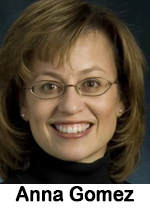 defund, or threaten news outlets that support the government’s views, and there’s a reason for that. This has never been about saving money. It’s about silencing those who report the news accurately, without fear or favor. The true cost of this one-sided attack on free speech will be felt most by small and rural communities across the country. Much like the disappearance of local newspapers, cutting off support for public stations could create a new kind of ‘news desert.’ In many hard-to-reach areas, these stations may be the only source for the public to receive emergency alerts, traffic updates, and information about local events and ways to stay engaged in their own neighborhoods. Defunding them strips away these essential services and further isolates the very communities these stations seek to serve. The FCC is playing a dangerous game with its own baseless attacks on public broadcast stations. Its role should be to protect and expand the public’s access to timely, accurate news that is free from political interference. I will continue fighting this FCC’s politically motivated efforts to investigate and harass these stations.”
defund, or threaten news outlets that support the government’s views, and there’s a reason for that. This has never been about saving money. It’s about silencing those who report the news accurately, without fear or favor. The true cost of this one-sided attack on free speech will be felt most by small and rural communities across the country. Much like the disappearance of local newspapers, cutting off support for public stations could create a new kind of ‘news desert.’ In many hard-to-reach areas, these stations may be the only source for the public to receive emergency alerts, traffic updates, and information about local events and ways to stay engaged in their own neighborhoods. Defunding them strips away these essential services and further isolates the very communities these stations seek to serve. The FCC is playing a dangerous game with its own baseless attacks on public broadcast stations. Its role should be to protect and expand the public’s access to timely, accurate news that is free from political interference. I will continue fighting this FCC’s politically motivated efforts to investigate and harass these stations.”  In radio and podcasting, editing isn’t just technical – it shapes narratives and influences audiences. Whether trimming dead air, tightening a guest’s comment, or pulling a clip for social media, every cut leaves an impression.
In radio and podcasting, editing isn’t just technical – it shapes narratives and influences audiences. Whether trimming dead air, tightening a guest’s comment, or pulling a clip for social media, every cut leaves an impression. There are two broad categories of thought: Task. Creative. When in creative mode, a person innovates, imagines, plans, and solves problems. An idea bank is a bank! Money grows from the results of imagination: new products, new music, new formats, new sales strategies. Business growth depends on new!
There are two broad categories of thought: Task. Creative. When in creative mode, a person innovates, imagines, plans, and solves problems. An idea bank is a bank! Money grows from the results of imagination: new products, new music, new formats, new sales strategies. Business growth depends on new! Let’s discuss how CBS’s $16 million settlement became a warning shot for every talk host, editor, and content creator with a mic.
Let’s discuss how CBS’s $16 million settlement became a warning shot for every talk host, editor, and content creator with a mic. strengthen America’s tower and telecom workforce. We will deliver on all of this by implementing smart policies while carrying out a massive and comprehensive deregulatory agenda. As we do so, we will be guided at the agency by a few simple ideas. For one, we will keep the Gretzky test front and center. We want to keep our eye on where the proverbial puck is going, not where it has been. For another, we are going to take a first principles approach. Just because a regulation has been on the books for 30 years, we are not going to keep it there simply out of a sense of inertia. For still another, we will focus on competition as it exists today. The old regulatory silos have been breaking down for quite some time, so the agency must move forward with a keen understanding of today’s converged markets. We are going to focus on outcomes, rather than process to nowhere. We are going to have a bias towards action. After all, delay has an unappreciated economic and social cost. We are going to push for simple, clear rules, rather than complex and bespoke frameworks. And we are going to support U.S. businesses and domestic onshoring.”
strengthen America’s tower and telecom workforce. We will deliver on all of this by implementing smart policies while carrying out a massive and comprehensive deregulatory agenda. As we do so, we will be guided at the agency by a few simple ideas. For one, we will keep the Gretzky test front and center. We want to keep our eye on where the proverbial puck is going, not where it has been. For another, we are going to take a first principles approach. Just because a regulation has been on the books for 30 years, we are not going to keep it there simply out of a sense of inertia. For still another, we will focus on competition as it exists today. The old regulatory silos have been breaking down for quite some time, so the agency must move forward with a keen understanding of today’s converged markets. We are going to focus on outcomes, rather than process to nowhere. We are going to have a bias towards action. After all, delay has an unappreciated economic and social cost. We are going to push for simple, clear rules, rather than complex and bespoke frameworks. And we are going to support U.S. businesses and domestic onshoring.” 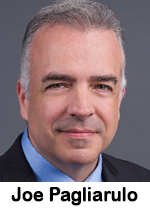 market manager Lance Hawkins says, “Joe Pags represents everything we value at KTSA. He’s dynamic, authentic, and rooted in Texas values. Our mission is to build radio brands that are Live and Local, deeply involved in the communities they serve, and always evolving. Pags’ addition to KTSA proves that mission in action.” Pags says that his welcome to KTSA is both professional and personal. “I am thrilled to call KTSA the new flagship for the Joe Pags Show. I’ve been based in San Antonio for 20 years and have always been a fan of the amazing hosts on KTSA. It’s truly an honor to get back on the air in SA and talk with these amazing people on their ride home once again. I can’t thank Jeff Warshaw, Lance Hawkins
market manager Lance Hawkins says, “Joe Pags represents everything we value at KTSA. He’s dynamic, authentic, and rooted in Texas values. Our mission is to build radio brands that are Live and Local, deeply involved in the communities they serve, and always evolving. Pags’ addition to KTSA proves that mission in action.” Pags says that his welcome to KTSA is both professional and personal. “I am thrilled to call KTSA the new flagship for the Joe Pags Show. I’ve been based in San Antonio for 20 years and have always been a fan of the amazing hosts on KTSA. It’s truly an honor to get back on the air in SA and talk with these amazing people on their ride home once again. I can’t thank Jeff Warshaw, Lance Hawkins provide cultural, social, and political commentary across all FOX News Media platforms. Cooper launched her podcast, “The Brett Cooper Show” in January 2025. From 2022-2024, Cooper hosted “The Comments Section,” a video podcast on The Daily Wire.
provide cultural, social, and political commentary across all FOX News Media platforms. Cooper launched her podcast, “The Brett Cooper Show” in January 2025. From 2022-2024, Cooper hosted “The Comments Section,” a video podcast on The Daily Wire. The addition of these stations fits perfectly into our late founder, my father, Thomas H. Draper’s motto that it is our moral obligation to serve our audience and advertising partners.” In a press release, Draper says it currently operates WBOC-TV, FOX21, WRDE-TV, Telemundo Delmarva, Antenna TV, My Cozi TV, The DSN Sports Network, and multiple FM radio stations across the Delmarva Peninsula. Speaking for seller Forever Media, president Lynn Deppen comments, “We are proud of the legacy these stations have built in their communities and grateful to our dedicated teams who have served listeners with passion and professionalism. We are confident that Draper Media shares our commitment to local broadcasting and will continue to provide outstanding service to audiences and advertisers alike as these stations enter an exciting new chapter.” The transaction is expected to close in the third quarter of 2025, subject to approval by the FCC.
The addition of these stations fits perfectly into our late founder, my father, Thomas H. Draper’s motto that it is our moral obligation to serve our audience and advertising partners.” In a press release, Draper says it currently operates WBOC-TV, FOX21, WRDE-TV, Telemundo Delmarva, Antenna TV, My Cozi TV, The DSN Sports Network, and multiple FM radio stations across the Delmarva Peninsula. Speaking for seller Forever Media, president Lynn Deppen comments, “We are proud of the legacy these stations have built in their communities and grateful to our dedicated teams who have served listeners with passion and professionalism. We are confident that Draper Media shares our commitment to local broadcasting and will continue to provide outstanding service to audiences and advertisers alike as these stations enter an exciting new chapter.” The transaction is expected to close in the third quarter of 2025, subject to approval by the FCC. In early 2024, voters in New Hampshire got strange robocalls. The voice sounded just like President Joe Biden, telling people not to vote in the primary. But it wasn’t him. It was an AI clone of his voice – sent out to confuse voters.
In early 2024, voters in New Hampshire got strange robocalls. The voice sounded just like President Joe Biden, telling people not to vote in the primary. But it wasn’t him. It was an AI clone of his voice – sent out to confuse voters. Free Press for the very first stop of our First Amendment Tour outside of Washington. Together, we must continue to stand up for free expression and push back against the Administration’s growing campaign of censorship and control.” Gomez’s office says that as part of her tour, Gomez is partnering with consumer and civil society organizations across the ideological spectrum to participate in speaking engagements and listening sessions focused on protecting the rights and freedoms enshrined in the First Amendment. Most recently, she held an event in partnership with the Center for Democracy and Technology, spoke at the Media Institute, and participated in a workshop held by the Competitive Enterprise Institute and TechFreedom.
Free Press for the very first stop of our First Amendment Tour outside of Washington. Together, we must continue to stand up for free expression and push back against the Administration’s growing campaign of censorship and control.” Gomez’s office says that as part of her tour, Gomez is partnering with consumer and civil society organizations across the ideological spectrum to participate in speaking engagements and listening sessions focused on protecting the rights and freedoms enshrined in the First Amendment. Most recently, she held an event in partnership with the Center for Democracy and Technology, spoke at the Media Institute, and participated in a workshop held by the Competitive Enterprise Institute and TechFreedom.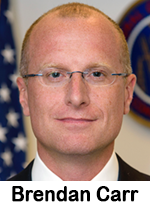 regulatory burdens. We received great feedback from a range of stakeholders already and plan on eliminating onerous, antiquated, and unlawful requirements across the board.” Carr added, “And we have been delivering these results with a focus on efficiency. At the beginning of Fiscal Year 2025, the FCC employed 1,461 full-time employees. As of April 28, 2025, the FCC employed 1,383 full-time employees. The difference over the last six months can be attributed to many factors, including FCC employees who took advantage of the early retirement window opened by my predecessor, the deferred resignation program offered by President Trump, and natural turnover. The agency is well positioned to continue carrying out its statutory mission for the remainder of Fiscal Year 2025 and beyond.”
regulatory burdens. We received great feedback from a range of stakeholders already and plan on eliminating onerous, antiquated, and unlawful requirements across the board.” Carr added, “And we have been delivering these results with a focus on efficiency. At the beginning of Fiscal Year 2025, the FCC employed 1,461 full-time employees. As of April 28, 2025, the FCC employed 1,383 full-time employees. The difference over the last six months can be attributed to many factors, including FCC employees who took advantage of the early retirement window opened by my predecessor, the deferred resignation program offered by President Trump, and natural turnover. The agency is well positioned to continue carrying out its statutory mission for the remainder of Fiscal Year 2025 and beyond.”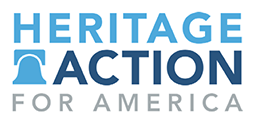 1940s, when broadcast dominated mass communications in the U.S. Since then, the media marketplace has changed drastically – from widespread deployment of cable and satellite television networks to the rise of social media, podcasts, and streaming. Local broadcasters compete directly with Big Tech, streaming services, and social media platforms in the marketplace of consumer content. Yet, unlike their competitors such as YouTube and Facebook, broadcasters are limited by the ownership rules in how many households and consumers they can reach. This is an inherent disadvantage.” The letter adds, “By eliminating the national television cap, local TV duopoly restrictions, and local radio ownership caps, broadcasters can better achieve the scale and efficiencies necessary to compete – and to attract vital investment – in a fragmented and rapidly evolving information market.”
1940s, when broadcast dominated mass communications in the U.S. Since then, the media marketplace has changed drastically – from widespread deployment of cable and satellite television networks to the rise of social media, podcasts, and streaming. Local broadcasters compete directly with Big Tech, streaming services, and social media platforms in the marketplace of consumer content. Yet, unlike their competitors such as YouTube and Facebook, broadcasters are limited by the ownership rules in how many households and consumers they can reach. This is an inherent disadvantage.” The letter adds, “By eliminating the national television cap, local TV duopoly restrictions, and local radio ownership caps, broadcasters can better achieve the scale and efficiencies necessary to compete – and to attract vital investment – in a fragmented and rapidly evolving information market.” 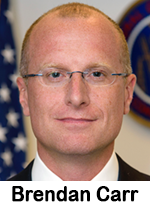 great results for the country and doing so in an efficient manner. That starts with being good stewards of taxpayer dollars. From day one, we have been combing through every FCC contract to eliminate redundancies and wasteful spending. No stone is being left unturned. To date, we have reduced more than $567 million in authorized contract spending, including by ending bloated or unnecessary IT contracts. This is an important step towards ensuring long-term efficiency and maintaining our focus on the FCC’s core responsibilities.”
great results for the country and doing so in an efficient manner. That starts with being good stewards of taxpayer dollars. From day one, we have been combing through every FCC contract to eliminate redundancies and wasteful spending. No stone is being left unturned. To date, we have reduced more than $567 million in authorized contract spending, including by ending bloated or unnecessary IT contracts. This is an important step towards ensuring long-term efficiency and maintaining our focus on the FCC’s core responsibilities.”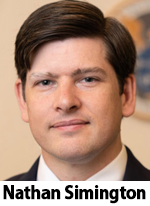 Global, the parent company of CBS, have begun charging what’s known as ‘reverse’ retransmission fees to broadcasters. The networks demand a share of broadcasters’ revenue for the right to use their content. This practice was once unheard of, but some networks now regularly require more than 100% of broadcasters’ retransmission fees as ‘reverse’ fees, leaving broadcasters to sustain themselves solely on whatever ad sales they can make with their limited inventory (also capped by the networks, and often amounts to only a few minutes of airtime per hour). This funnels more and more money out of local markets and local journalism and into the hands of mega media corporations, who threaten broadcasters with content blackouts if they don’t get sky-high payouts.” They go on to argue that the “problem gets even worse with providers like YouTube TV and Hulu Live. Under their affiliate agreements with the networks, local affiliates can’t even negotiate for online providers to carry the content. The networks do it for them and pay the affiliates whatever they deem reasonable (sometimes, nothing). This gives the networks total control over streaming distribution while robbing local stations of revenue and autonomy in the rapidly growing online video space. What was once a mechanism to support hometown news is now a corporate racket. Instead of investing in local reporters, meteorologists, and producers, local broadcasters’ funds are siphoned to bloated national newsrooms that churn out anti-Trump propaganda and woke talking points. Meanwhile, higher cable bills pass the cost to everyday Americans.”
Global, the parent company of CBS, have begun charging what’s known as ‘reverse’ retransmission fees to broadcasters. The networks demand a share of broadcasters’ revenue for the right to use their content. This practice was once unheard of, but some networks now regularly require more than 100% of broadcasters’ retransmission fees as ‘reverse’ fees, leaving broadcasters to sustain themselves solely on whatever ad sales they can make with their limited inventory (also capped by the networks, and often amounts to only a few minutes of airtime per hour). This funnels more and more money out of local markets and local journalism and into the hands of mega media corporations, who threaten broadcasters with content blackouts if they don’t get sky-high payouts.” They go on to argue that the “problem gets even worse with providers like YouTube TV and Hulu Live. Under their affiliate agreements with the networks, local affiliates can’t even negotiate for online providers to carry the content. The networks do it for them and pay the affiliates whatever they deem reasonable (sometimes, nothing). This gives the networks total control over streaming distribution while robbing local stations of revenue and autonomy in the rapidly growing online video space. What was once a mechanism to support hometown news is now a corporate racket. Instead of investing in local reporters, meteorologists, and producers, local broadcasters’ funds are siphoned to bloated national newsrooms that churn out anti-Trump propaganda and woke talking points. Meanwhile, higher cable bills pass the cost to everyday Americans.” 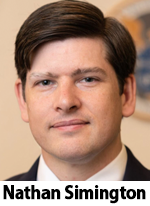 lies in its ability to deploy high-end, labor-light, automation-heavy processes at scale. It’s a productivity story now, driven by robotics, industrial AI, and, most crucially, advanced 5G infrastructure deployed as an industrial platform — not just as a consumer gimmick.” He adds, “Compare this with our own policy environment, where even the best private sector players are hamstrung by outdated regulations, capricious permitting processes, and the dogma that government shouldn’t pick winners — especially in telecom or manufacturing. That ideology might have made sense in the 1990s, but it’s lethal to the future of our telecommunications industry now, and in consequence, our manufacturing future.”
lies in its ability to deploy high-end, labor-light, automation-heavy processes at scale. It’s a productivity story now, driven by robotics, industrial AI, and, most crucially, advanced 5G infrastructure deployed as an industrial platform — not just as a consumer gimmick.” He adds, “Compare this with our own policy environment, where even the best private sector players are hamstrung by outdated regulations, capricious permitting processes, and the dogma that government shouldn’t pick winners — especially in telecom or manufacturing. That ideology might have made sense in the 1990s, but it’s lethal to the future of our telecommunications industry now, and in consequence, our manufacturing future.”  Carr of “illegally targeting broadcast networks and media companies perceived to be unfavorably covering the Trump Administration – wasting critical agency resources on bogus investigations in the process.” The lawmakers are also questioning Carr’s “commitment to his agency’s independence, given his frequent trips with the president to Mar-a-Lago and his targeting of entities that the president has criticized or sued in his personal capacity.” Committee Ranking Members says that “under Carr’s leadership, the FCC has harassed CBS for routine editing practices, reinstated lawfully denied complaints against ABC and NBC, launched a bogus investigation into KCBS-AM in San Jose simply for reporting publicly available information, and directed the FCC’s Enforcement Bureau to launch investigations into NPR and PBS based on false allegations.” The Committee is requesting documents and communications “related to its investigations of media entities,” “all communications between Carr and current White House officials and between Carr and other Trump Administration officials that relate to investigations,” as well as Carr’s travel records.
Carr of “illegally targeting broadcast networks and media companies perceived to be unfavorably covering the Trump Administration – wasting critical agency resources on bogus investigations in the process.” The lawmakers are also questioning Carr’s “commitment to his agency’s independence, given his frequent trips with the president to Mar-a-Lago and his targeting of entities that the president has criticized or sued in his personal capacity.” Committee Ranking Members says that “under Carr’s leadership, the FCC has harassed CBS for routine editing practices, reinstated lawfully denied complaints against ABC and NBC, launched a bogus investigation into KCBS-AM in San Jose simply for reporting publicly available information, and directed the FCC’s Enforcement Bureau to launch investigations into NPR and PBS based on false allegations.” The Committee is requesting documents and communications “related to its investigations of media entities,” “all communications between Carr and current White House officials and between Carr and other Trump Administration officials that relate to investigations,” as well as Carr’s travel records.